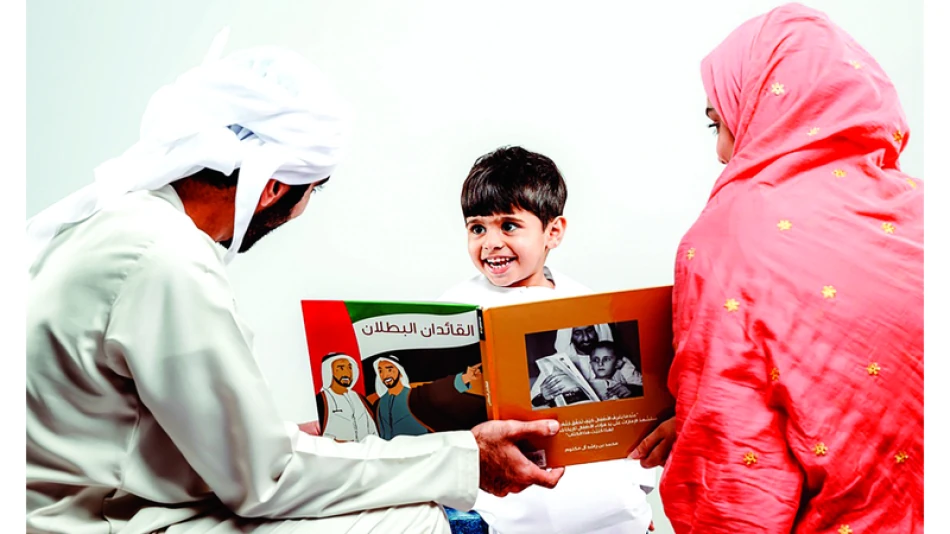
5 Essential Programs for Creating an Ideal Environment for Child Development
Abu Dhabi Launches Comprehensive Child Protection Framework with Five Strategic Programs
Abu Dhabi has unveiled an ambitious child protection initiative comprising five major programs designed to create safer environments for early childhood development. The Abu Dhabi Early Childhood Authority's comprehensive approach addresses everything from data-driven policy making to startup innovation, positioning the emirate as a regional leader in child welfare standards.
The "Dam Al-Aman" Child Protection Policy
At the heart of the initiative lies the "Dam Al-Aman" (Safety Endures) child protection policy, built on three foundational principles: prioritizing the child's best interests, ensuring equity and non-discrimination, and respecting children's privacy through secure information handling.
The policy operates across six strategic pillars that reflect international best practices. These include developing effective prevention programs to shift social behaviors, establishing unified and trusted reporting channels for residents, enhancing early detection capabilities, and delivering coordinated high-quality care services.
Coordinated Response System
The framework introduces a case management model that emphasizes coordination between various sectors and agencies. This approach mirrors successful child protection systems in countries like Finland and Canada, where inter-agency collaboration has proven crucial for effective intervention.
Global Innovation Through "Wadd Initiative"
The "Wadd Global Initiative" for early childhood development represents Abu Dhabi's attempt to position itself as an international hub for child development expertise. By bringing together multidisciplinary global experts, the initiative aims to address future challenges facing children through innovative solutions and knowledge creation.
This approach aligns with the UAE's broader strategy of becoming a knowledge economy leader, similar to Singapore's early investments in education and child development that helped transform its economic landscape.
Data-Driven Policy Making
The Thriving Child Index
Perhaps the most innovative component is the "Thriving Child Index," a comprehensive measurement tool designed to evaluate and enhance child welfare across Abu Dhabi. This data-driven approach analyzes socioeconomic indicators to guide policy decisions and program development.
The index addresses a fundamental question in child welfare: "How do we actually measure whether a child is thriving?" This evidence-based methodology reflects growing global recognition that effective child protection requires sophisticated measurement tools, similar to approaches adopted in Nordic countries.
Quality Assurance Beyond Traditional Settings
The authority has developed a quality assessment system for services provided to children up to eight years old outside traditional nurseries and schools. This includes camps, after-school programs, children's libraries, parks, sports facilities, and family entertainment centers.
This comprehensive approach recognizes that child development occurs across multiple environments, not just formal educational settings. The move reflects international research showing the importance of community-wide child protection networks.
Fostering Innovation Through "Anjal Z" Program
The "Anjal Z" program encourages innovation in early childhood development by enabling startups worldwide to provide solutions for key challenges facing the sector in Abu Dhabi and the UAE. The program builds partnerships and launches fellowship initiatives to accelerate innovation.
The name pays homage to Sheikh Zayed bin Sultan Al Nahyan's values while also referencing Generation Z, highlighting the program's focus on future-oriented solutions. This dual symbolism reflects the UAE's approach of honoring tradition while embracing innovation.
Regional Leadership and Global Implications
Abu Dhabi's comprehensive approach positions the emirate ahead of regional competitors in child protection standards. While other Gulf states have made investments in education and family services, few have attempted such an integrated, data-driven approach to early childhood development.
The initiative's emphasis on international expertise and startup innovation suggests Abu Dhabi is positioning itself not just as a regional leader, but as a global hub for child development innovation. This aligns with the UAE's broader Vision 2071 goals of becoming a global leader in various sectors.
The success of these programs could provide a model for other developing nations seeking to improve child protection systems while fostering innovation in the sector. The combination of traditional values, modern technology, and international expertise represents a potentially replicable approach for countries with similar resources and ambitions.
Most Viewed News

 Sara Khaled
Sara Khaled






